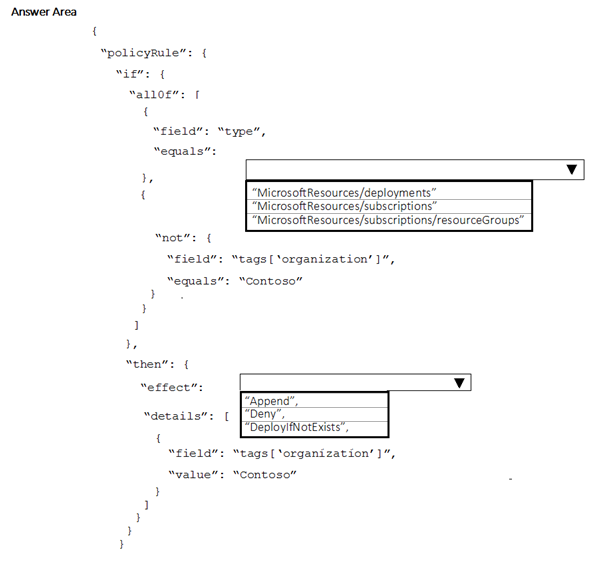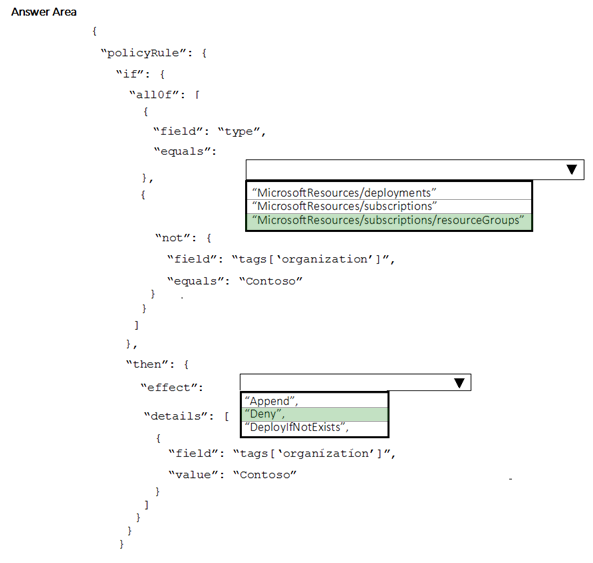

HOTSPOT -
Your company has an Azure subscription.
The company requires that all resource groups in the subscription have a tag named organization set to a value of Contoso.
You need to implement a policy to meet the tagging requirement.
How should you complete the policy? To answer, select the appropriate options in the answer area.
NOTE: Each correct selection is worth one point.
Hot Area:

TosO
Highly Voted 5 years, 2 months agoMP270915
5 years, 2 months ago[Removed]
5 years, 2 months agohubeau
5 years, 2 months agoluango
5 years agoyemma
5 years agoMorettimaxi
4 years, 11 months agoakp1000
2 years, 10 months agoprashantjoge
3 years, 2 months agoprashantjoge
3 years, 2 months agoRoot_Access
Highly Voted 5 years agoChiboy
3 years agoe0da014
Most Recent 12 months agochloaus
1 year, 2 months agozapi
1 year, 2 months agohydrillo
1 year, 7 months agogabo
1 year, 8 months agoMisterit
1 year, 10 months agoPukun
2 years agoDGladiator
2 years agocol2511kol
2 years, 2 months agocol2511kol
2 years, 2 months agogeorgedevops_111
2 years, 5 months agoOluseun
2 years, 6 months agoAtos
2 years, 9 months agopdk88
2 years, 9 months agoDarkeh
2 years, 10 months ago